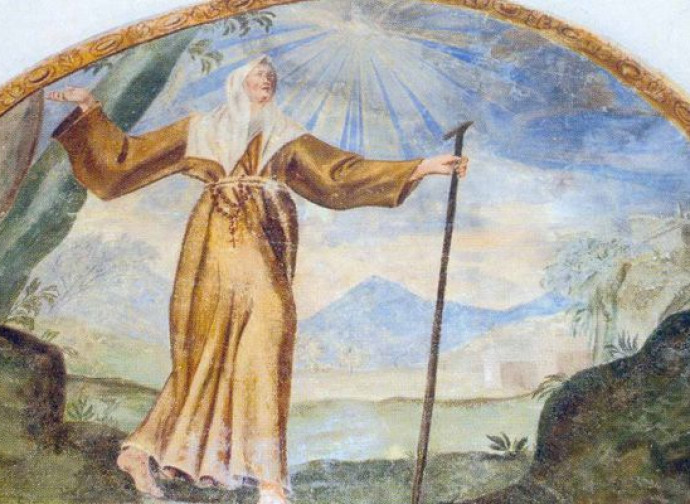Saint Angela of Foligno
The first teaching left by saint Angela of Foligno is the importance of a good confession, as a source of regeneration for every Christian, which, in her case, marked the beginning of her conversion.

The first teaching left by this great mystic, who lived in Umbria a couple of decades after Saint Francis of Assisi, is the importance of a good confession, as a source of regeneration for every Christian, which, in her case, marked the beginning of her conversion. Saint Angela of Foligno (1248-1309) had grown up in a wealthy family and after her marriage, contracted when she was quite young, she had lived a "wild, adulterous and sacrilegious" life, as stated in the Memorial written by her confessor. A worldly life amidst various comforts and pleasures, which had led her to "become acquainted with sin" – until one day she decided to go to confession; but "shame prevented her from making a thorough confession, and for this reason she remained in torment".
This was overcome after a fervent prayer to Saint Francis, who appeared to her in a dream, and the complete confession that followed, around 1285, when Angela was already a mature woman. She then began to live in penance, cultivating detachment from things, affections and self-love, while attracting criticism from some family members. As her mother, husband and children all died within a short time, Angela decided to enter the Third Order of Saint Francis and abandon herself totally to Christ by meditating on his Passion and spending hours before the Crucifix, as did her contemporary Saint Margaret of Cortona, another mystic with a very similar life experience.
The height of her spiritual growth was around 1291 during a pilgrimage to Assisi, when Angela had a long dialogue with the Holy Spirit and then, in church – while praying and "fully awake" – an indescribable manifestation of the Trinity ("I saw something full, an immense majesty, which I cannot say, but it seemed to me that it was all good"); as the vision departed, she screamed: "Love unknown, why? " Her Memorial – viewed by contemporary scholars such as Cardinal Giacomo Colonna, who endorsed it – depicts thirty stages in the soul's journey towards intimate union with God, possible through the overcoming of temptations, renunciation, meditation on the mysteries of Christ, love for the Eucharist and acceptance of the cross. Throughout this elevation, the main initiative is always God's, provided He find the soul ready to welcome Him and embrace His Will.
Humility, the sacraments and prayer were therefore the spiritual nourishment that Angela, venerated for centuries as "Mistress of Theologians", beatified in 1693 and canonised on 9th October 2013 by equivalence (that is, by the pontiff's decree on the concurrence of: antiquity of the cult, constant and general attestation of virtues, and uninterrupted reputation for miracles), endeavoured to transmit to the cenacle of "filioli" that gathered around her, attracted by her testimony of a life following Christ "who made Himself and still is the way in this world; a way ... very true and straight and short".
Patron of: widows, people afflicted by sexual temptations
